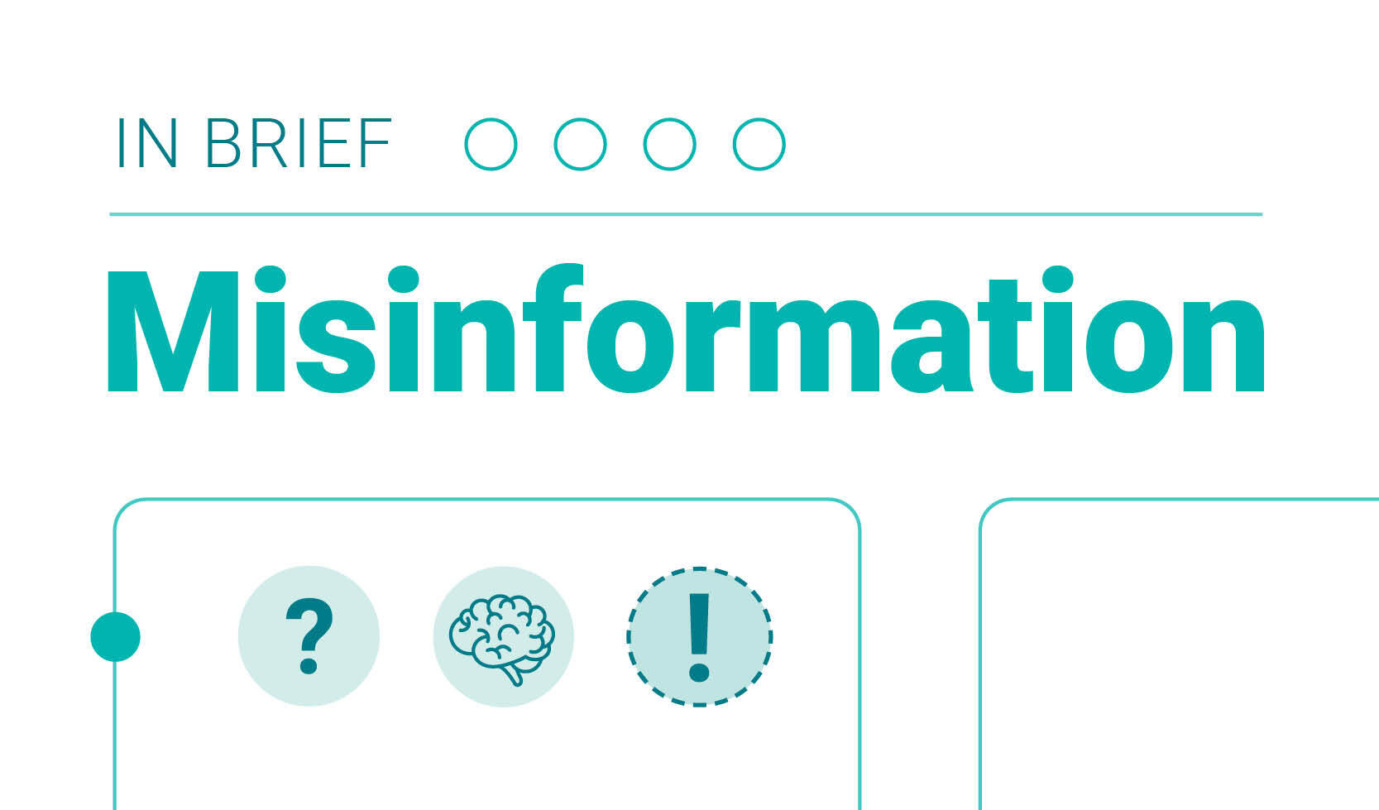
Tools for recognizing information and helping others do the same
A big part of being news-literate is knowing what to watch out for and being able to recognize misinformation. That way, you can pause when you see it — and NOT share!
You can also respond to posts in replies and comments, letting others know — without amplifying —content that is false, misleading or taken out of context.
Why do people share misinformation? Bad actors and those attempting to cause confusion share disinformation, typically for personal, political or financial gain. But many people, often with good intentions, are fooled into sharing falsehoods, further polluting the information landscape.
Our misinformation infographic can help you understand what misinformation is and how to recognize it.
Talking with family and friends
While always problematic, when misinformation appears alongside pet photos and family updates on social media, it can be especially frustrating and unwelcome. It’s one thing if a stranger spreads falsehoods online. While every scenario is different, following some general best practices can help keep the conversation civil and make the interaction worthwhile. It may not be easy but talking to loved ones about false or misleading content can help them think twice about what to share in the future. Stepping into the role of fact-checker when it comes to loved ones can be tricky and stir strong emotions, so it’s worth preparing for — especially as more falsehoods seep across social media and into family and friend group chats. Check out this poster, How to speak up without starting a showdown, which outlines six steps to guide you through a conversation with family and friends.
Critical points to remember about misinformation:
- Falsehoods always reach more people than corrections.
- Once misinformation is online, it spreads quickly.
- Anyone can fall victim to falsehoods.
- There’s no such thing as good misinformation — facts matter!